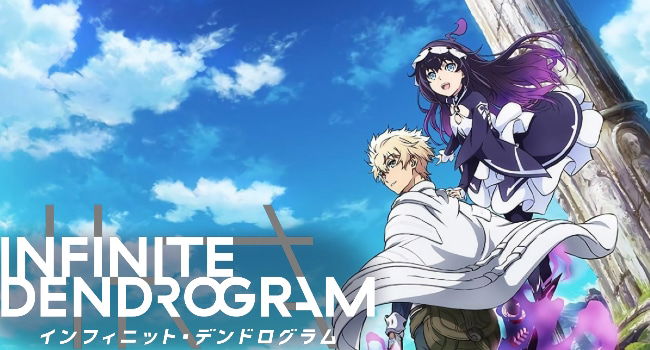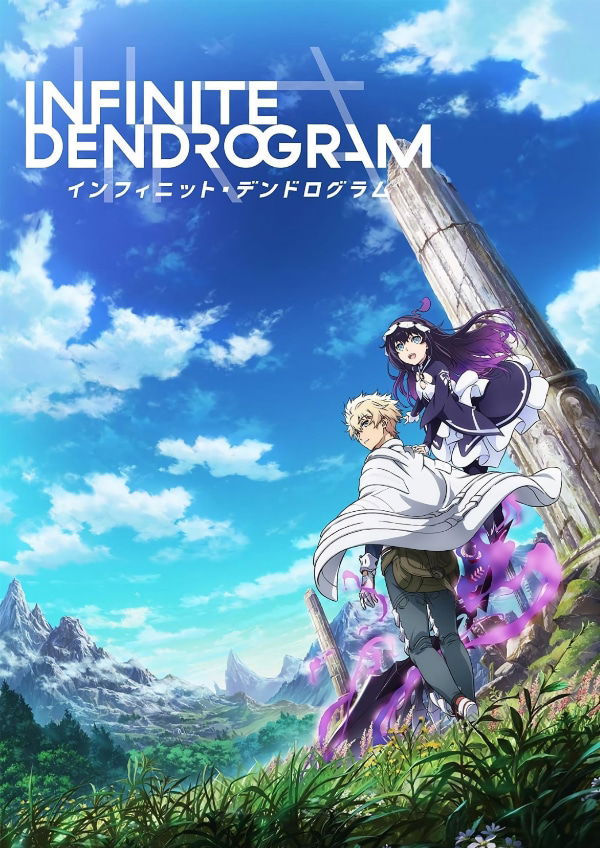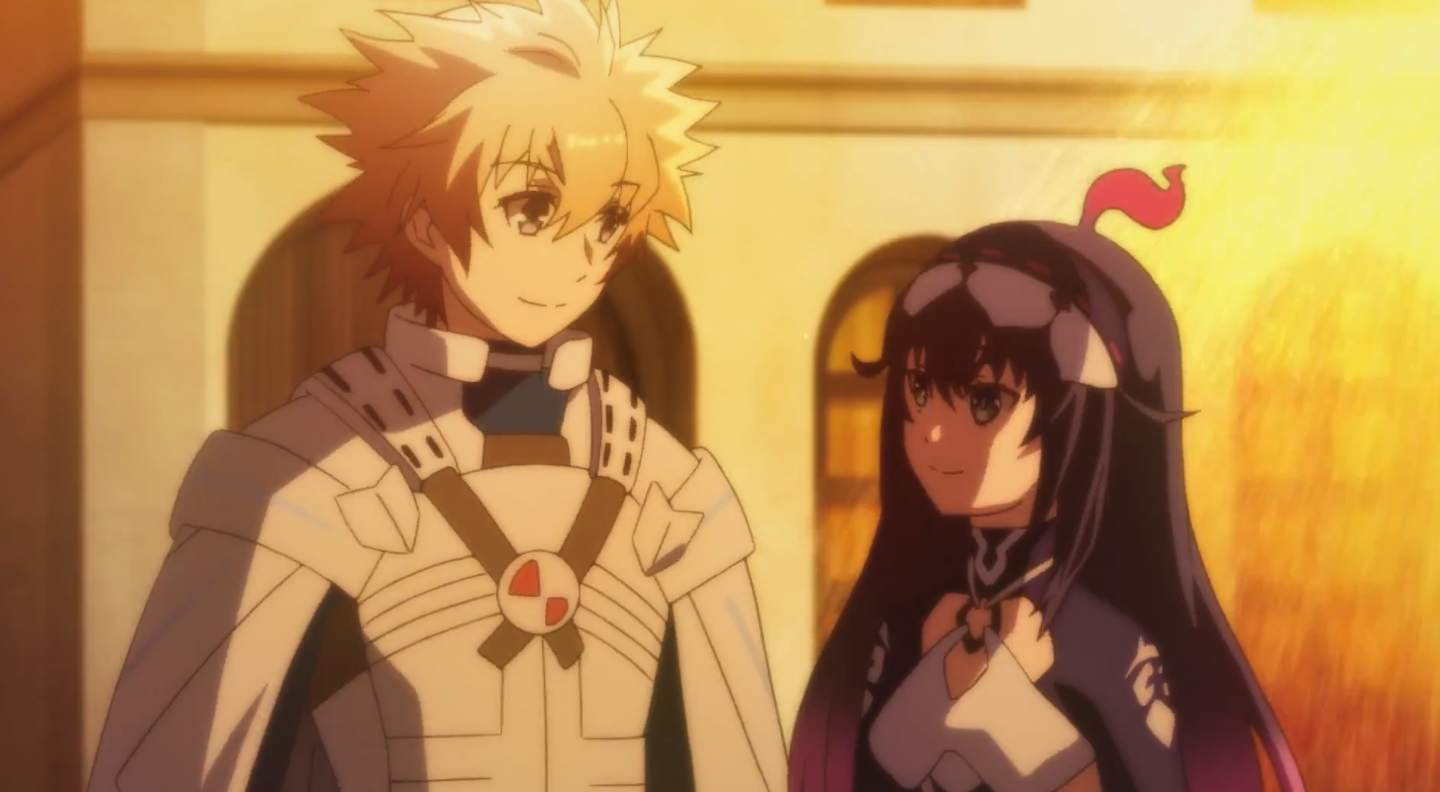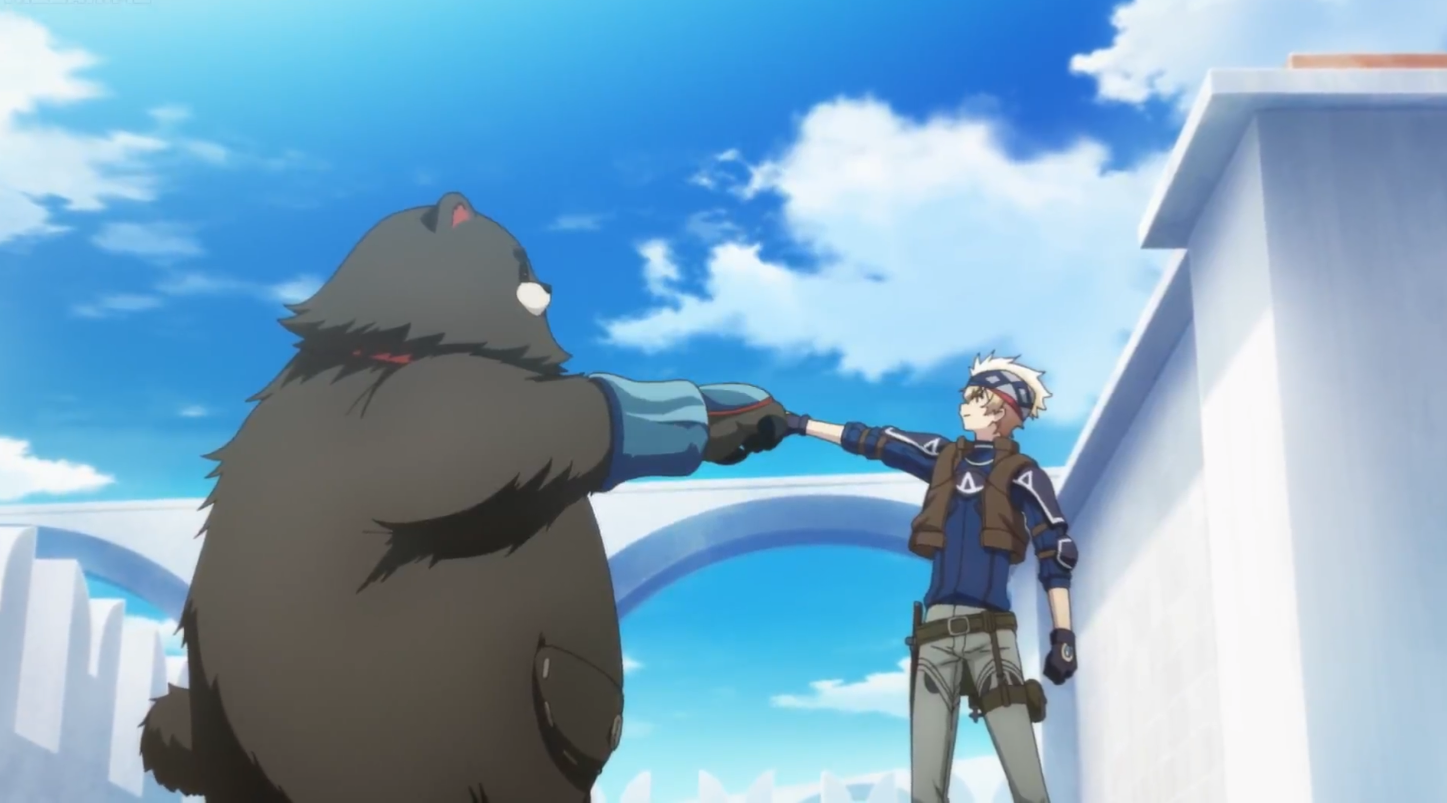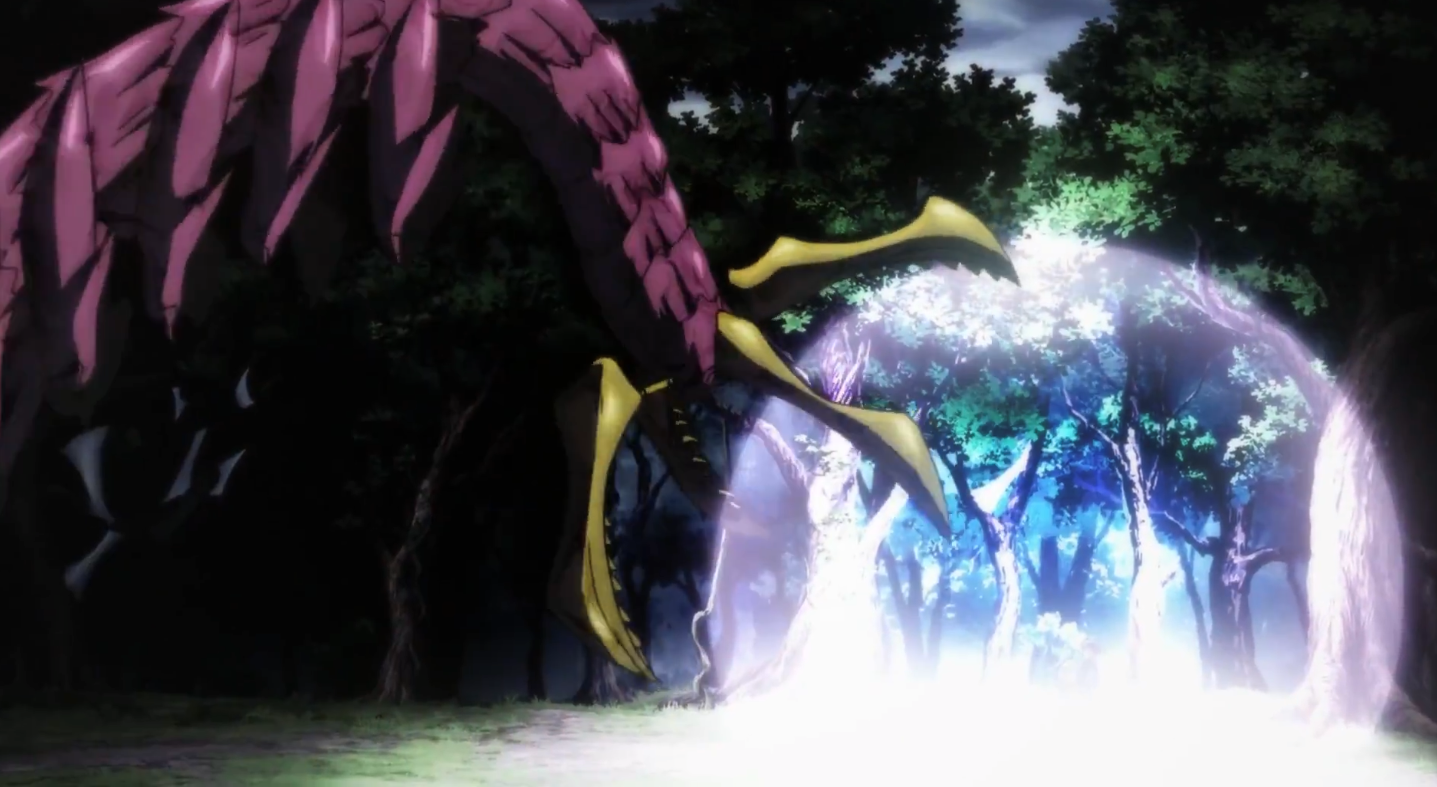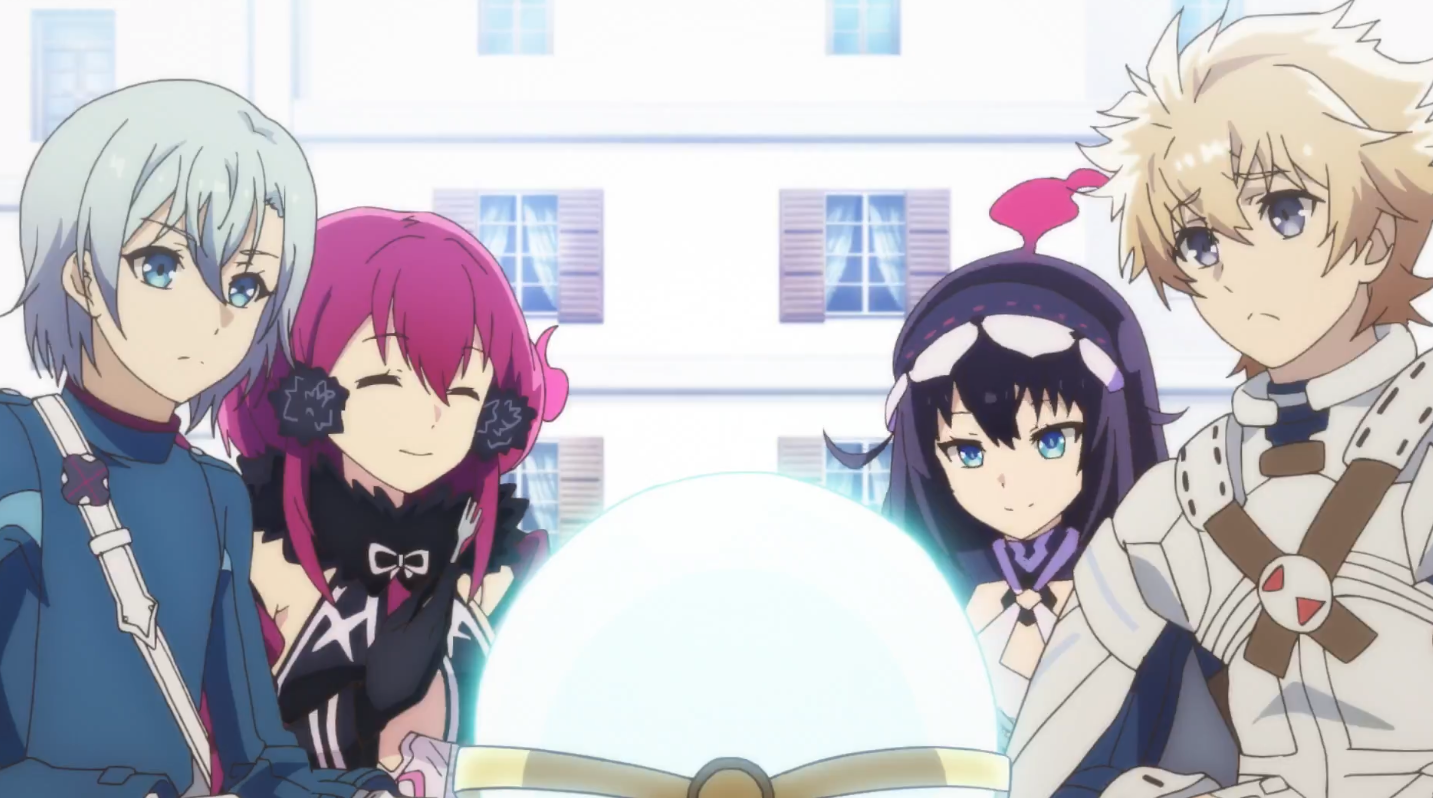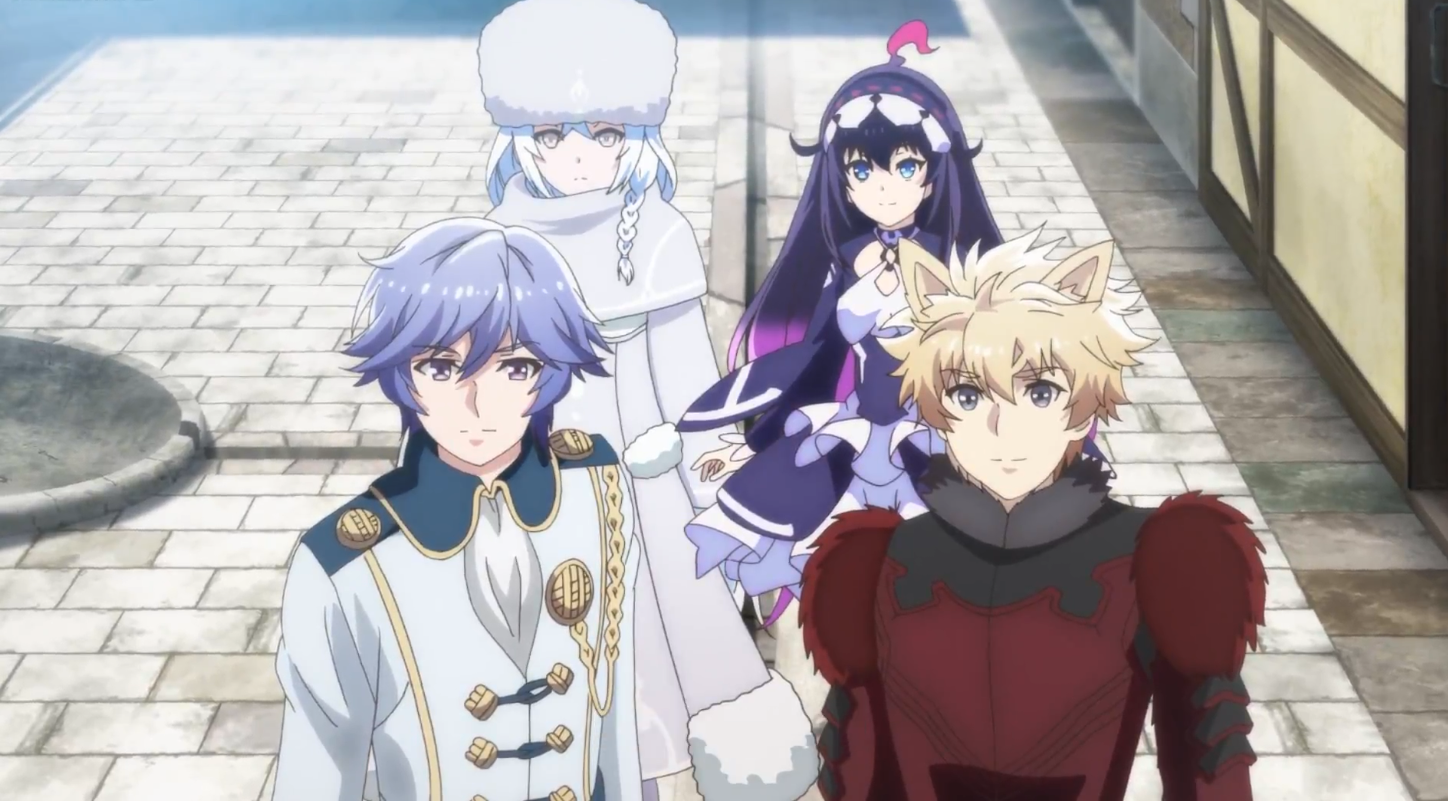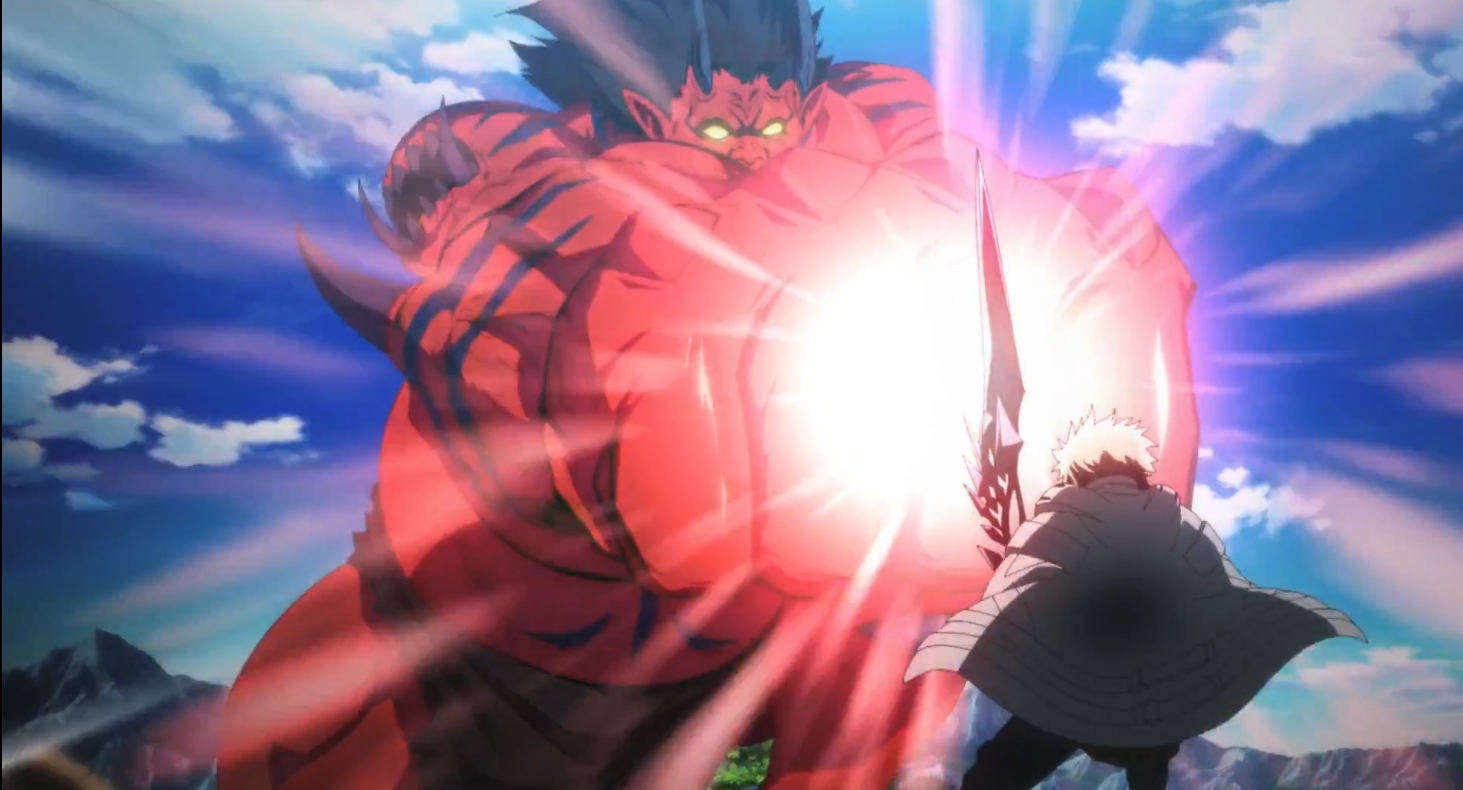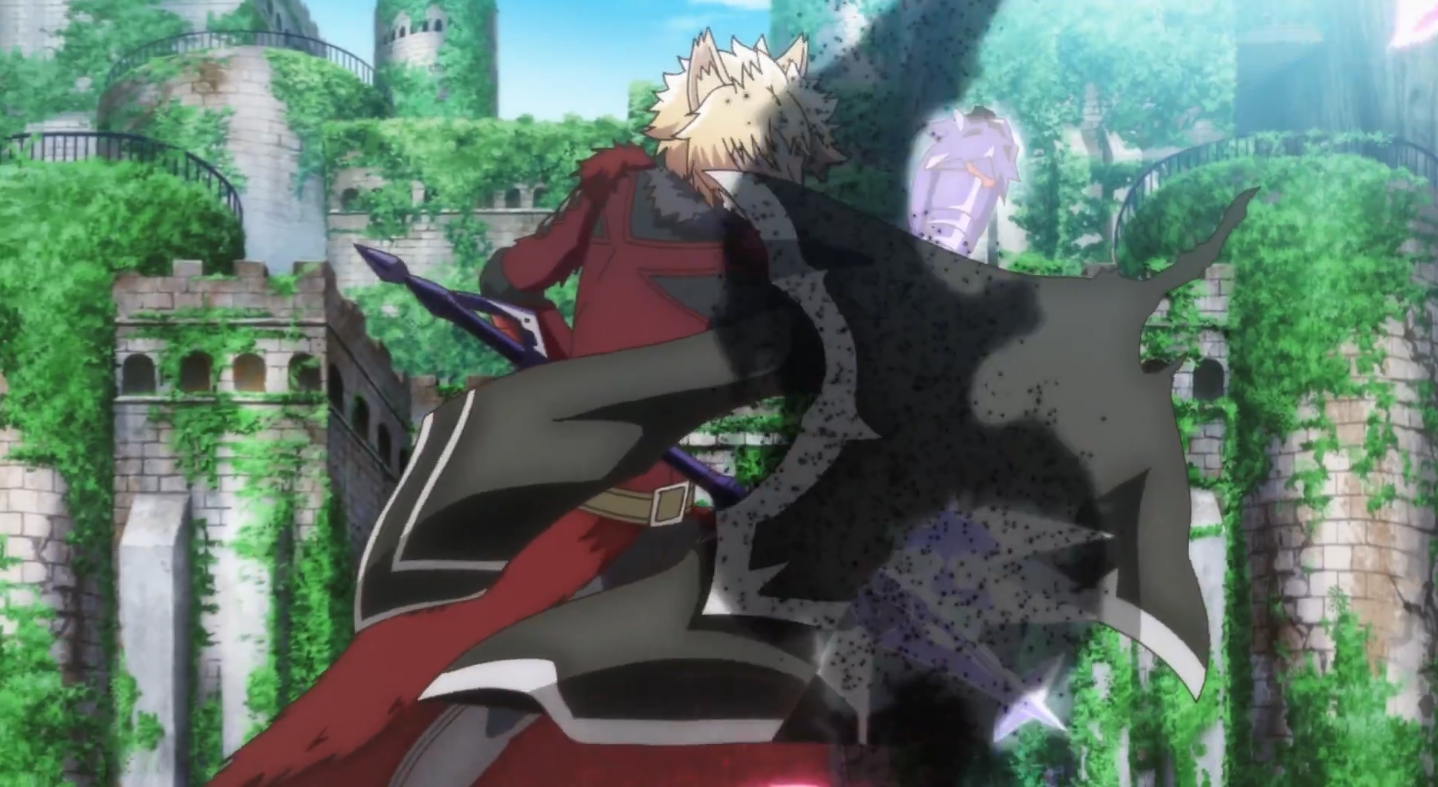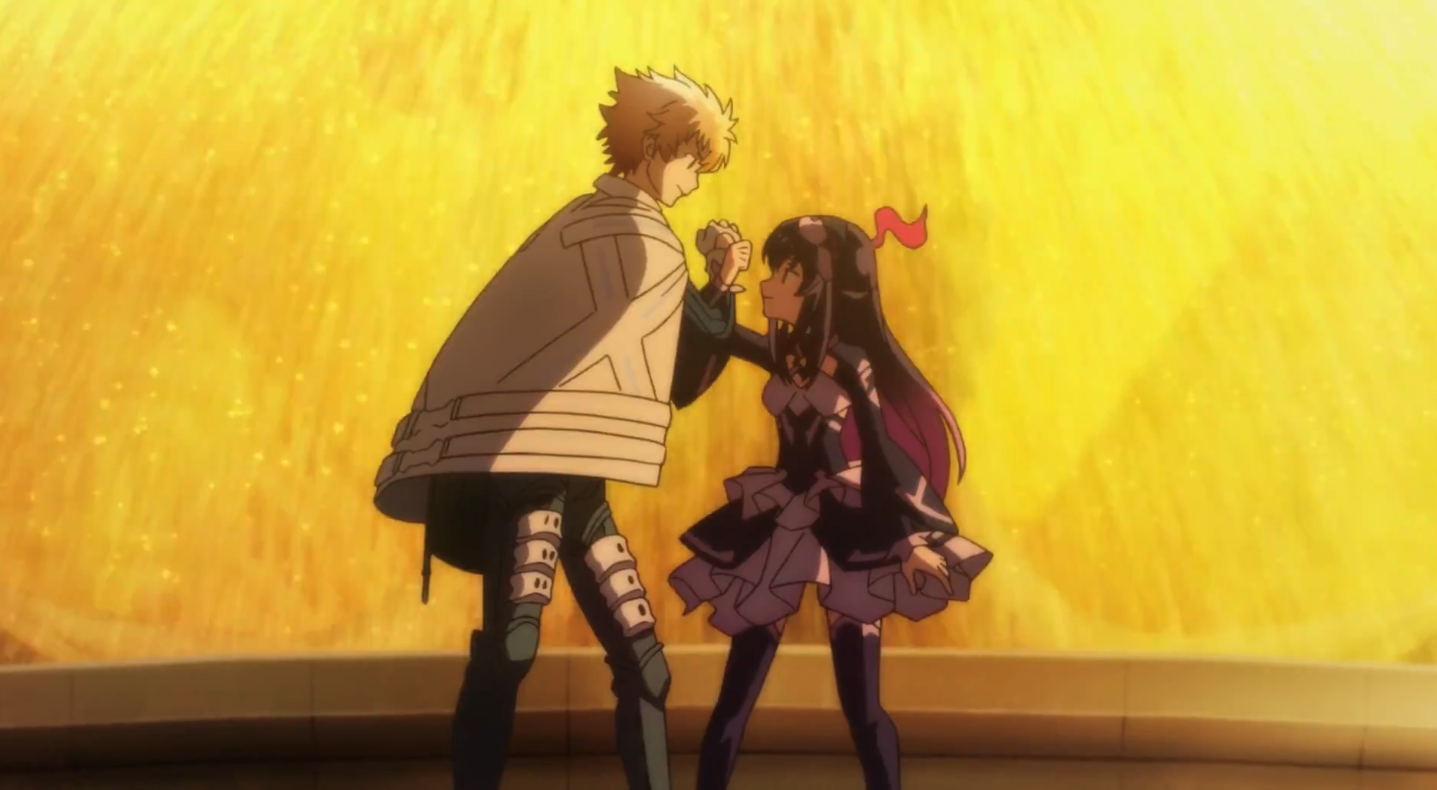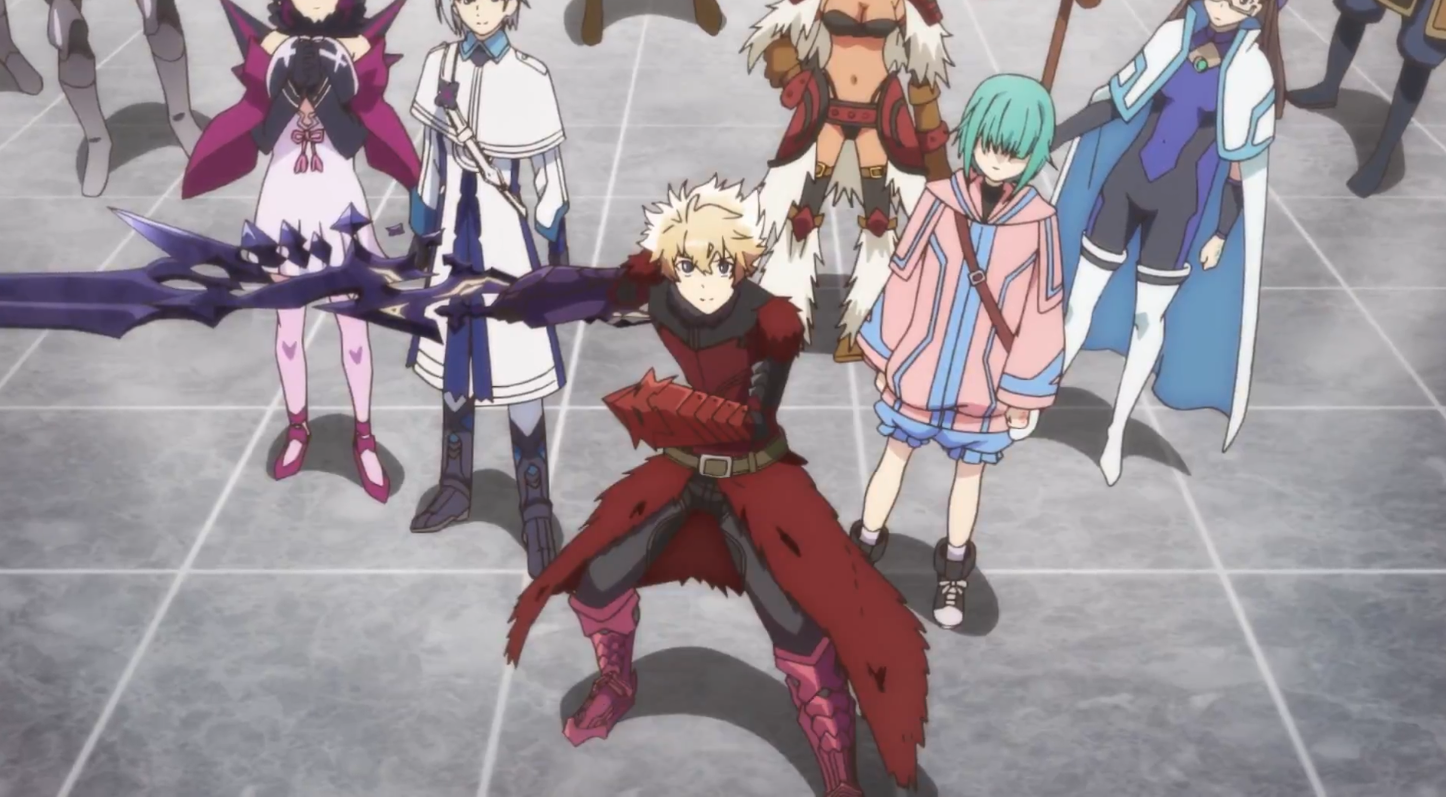Original Run: January 9, 2020 - April 16, 2020 Number of Episodes: 13 Genre: Fantasy, Isekai Based on the Series Created By: Sakon Kaidou
***Warning, the following may contain spoilers for Infinite Dendrogram. Reader discretion is advised.***
Series Synopsis
Infinite Dendrogram is a hyper-realistic virtual reality MMORPG. Inside, players can do whatever they want. If they wish to be a hero, they can. If they choose to be a villain, they can. There are no limitations.
Reiji Mukudori, a.k.a., Ray Starling (voiced by Soma Saito), has recently got his hands on a copy of Infinite Dendrogram. Upon entering, Ray discovers that both players and highly advanced A.I. have crafted an entire living, breathing world. Although new to the game, Ray is a bit of a natural and always seems to triumph over opponents far above his skill level.
While on his journey, Ray meets many unique players and NPCs, including his loyal partner and sword, Nemesis (voiced by Yuko Ono). However, the full extent of a game where anything is possible proves to be far more challenging than Ray could have imagined.
Series Positives
Infinite Dendrogram went from pure mediocrity to overly-complex mediocrity. To frame this show, we can’t look at it in terms of bad or good. To its core, this series was bland and instantly forgettable.
If you want to experience an anime with no weight, then you need not look any further than Infinite Dendrogram. But more on that in due time.
To acknowledge some positivity, the animation was fairly decent. The visuals weren’t anything to write home about, but they did have some meat behind them. There was scale, commendable uses of color, and the action scenes were akin to something entertaining. I hesitate to use the words “fun” in fear that it may give off the wrong impression.
Nevertheless, whenever there was a fight scene in Infinite Dendrogram, and there were quite a few, there was some noticeable punch, provided the presence – or, rather, lack of presence – of one crucial aspect that we will get to in the next section.
Easily the most engaging segment of this series came during the siege of the city of Gideon. Here was where we got some much-needed variety out of this show. At the start of the story, the titular Infinite Dendrogram was a game described as a world of endless possibilities; a player could do and be anything they wanted. On the whole, I would consider that notion a lie, but in this instance, there was a hint of truth.
For starters, this siege arc began with a duel between two of the game’s most powerful players. Sure enough, their face-off was big, flashy, and ridiculous, all of which should be expected when anything was possible. What was even better was there being nothing at stake during this fight.
According to the rules of Infinite Dendrogram, a duel was a risk-free test of strength. Players could fight to the death and not suffer the usual punishment for getting killed. So, this was just a display of pure skill, as well as the most interesting moment of the series.
Following the duel, we also got battles that starred two characters who had never been given much screentime beforehand. These two fights indicated that Infinite Dendrogram hosted many skilled players who put effort into getting good at the game. After all, this series, no matter what it might have said to the contrary, was a game.
Although Infinite Dendrogram was set in this grand fantasy world, it was nothing more than a video game. There were no destinies or prophecies; no chosen hero to fight some ultimate evil. And to mistake this for being anything more than that would have been troubling since consequences weren’t a thing.
Hence why Infinite Dendrogram, the series, failed. It thought it was something it could have never been.
Series Negatives
I am no stranger to getting attached to video game characters. I am a huge fan of the Fire Emblem series, and for those of you who don’t know, those games have a perma-death feature. Once someone dies in battle, they are gone for good. One wrong move can instantly doom a fighter you’ve been strengthening since the start, and trust me, it sucks.
In Infinite Dendrogram, NPCs were also vulnerable to perma-death. However, like any video game ever, players – a.k.a., most of the damn characters – were not. As a result, there was never anything at stake. Should a player fall, all that would happen to them would be a twenty-four-hour lockout. That may have been annoying, but it wasn’t the end of the world.
However, holy s@#$, this series tried to make it seem like it was.
I know it was established that time worked differently between the real world and the virtual one (twenty-four hours outside of game equaled thirty-two hours in-game). I can see why that could have been devastating to a particular mission, but this show sort of shot itself in the foot when it actively had players log out on their own accord.
That then makes me wonder, what happened when players needed to eat, or go to the bathroom, or do anything outside of the game? By the way, all those things either happened or were acknowledged in the series.
I will say, I found out something more boring that a paint-by-numbers isekai anime: An isekai anime that doesn’t want to be a true isekai anime. This whole time difference concept made absolutely no sense.
Now, I can hear some of you thinking:
Odyssey, this was a fantasy story, and there was no need to dissect and get hung up by its logic.
That should be true, and the only reason it isn’t is thanks to this series not being even the slightest bit interesting. Had Infinite Dendrogram grabbed my attention at all, I might have been willing to overlook this point. But when a show has a protagonist like Ray Starling, that becomes impossible.
Wow, Ray was flat. I’ve seen plain white walls with more personality than this guy. He wasn’t anything special; he had no unique powers or abilities. Ray was only an above-average player. And yet, he, somehow, became one of the most important figures of this world. Why? What about him was supposed to indicate anything special?
Remember how I said fights in this series were decent, provided they excluded a certain aspect. Ray was that aspect. Any face-off he was not a part of became so much more interesting to watch. This was a character that had negative charisma. Ray took from Infinite Dendrogram.
Ray had cringy catchphrases (notice the plural), his best move was to take damage, he spoke in failed inspirational speeches, and there were dozens of better, more exciting characters than him. And yet for some reason, he was the main hero everyone latched on to, and it was annoying.
Final Thoughts
There are good shows. There are bad shows. And then there are boring shows. Take a wild guess which one this was.
The story wasn’t anything spectacular. The rules of this world didn’t make any sense. There weren’t any consequences to anything. And above all else, we had a main character whose most notable skill was sucking personality away from everything around him.
Unless you want to experience mediocre, the answer is simple.
Infinite Dendrogram is a series you can skip.
But these are just my thoughts. What are yours? Have you seen this series? How would you advise Infinite Dendrogram? Leave a comment down below because I would love to hear what you have to say.
And if you’ve liked what you read and want more anime content, please follow me at LofZOdyssey Anime Reviews or on Twitter @thelofzodyssey.
Also, be sure to subscribe here at The Outerhaven and never miss any of your video game, anime, and other nerdom news and content.
I’m LofZOdyssey, and I will see you next time.
Also Read: Magia Record: Mahou Shoujo Madoka☆Magica Gaiden Series Review: The Side Story


